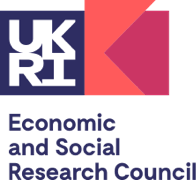About Us
The Centre for Time Use Research (CTUR) is an ESRC-designated Legacy Research Centre specialising in the collection and analysis of time use diary data, disseminating both skills and datasets to a wide international audience, and conducting a world-leading research programme. CTUR originated, produces, and disseminates the Multinational Time Use Study (MTUS), which currently provides 1.5 million days of randomly sampled time diary evidence for 25 countries over 65 years, via its website (timeuse.org) and IPUMS USA.
We work with time use data to investigate issues of social life, paid work patterns, work-life balance, family, gender, and socio-economic structure.
Our centre also specialises in finding innovative applications for population time-use evidence in fields such as public health, transport and energy research.
CTUR is an Economic and Social Research Council (ESRC) designated research centre and it has been based in the UCL Institute of Education since April 2019.
Background:
The role of time in the social sciences is in some ways similar to that in the physical world. Outcomes are frequently a function of rates - of pay, enjoyment, and physical activity - which, multiplied by durations, lead to outcomes: economic welfare, feelings of well-being, or health status.
Time-based Metrics
Seen in this way, time provides an alternative systematic basis for considering social phenomena such as economic growth, wellbeing, gender relations, social class and ageing.
We might select rates that reflect affective values (utilities or simply enjoyment). Or we might use Metabolic Equivalents (METs) to indicate the health consequences of physical activity, or measures that reflect environmental issues (fossil energy requirements per minute), indicating the environmental "footprint" of different activities.
We use these time-based metrics to complement money income, producing an integrated system of alternative indices of social progress. This allows discussion of the historical changes that produce social and economic 'bads' alongside economic goods in a better-balanced way than is possible by considering just money-based Gross National Product (GNP).
This potential, added to the opportunity to calculate national income "extensions" by valuing unpaid work, allows the development of a diversity of non-money indicators of the state of individual well-being and social development.



